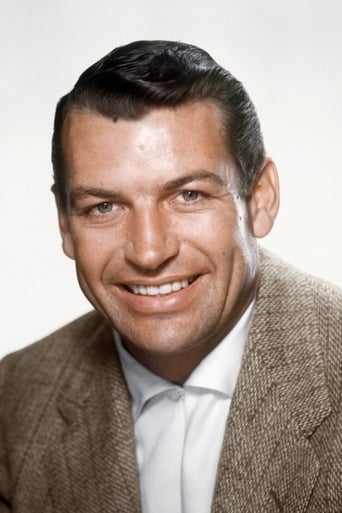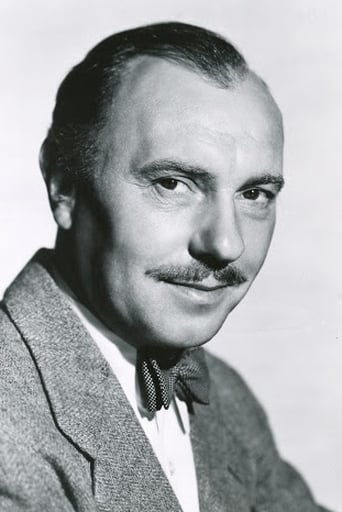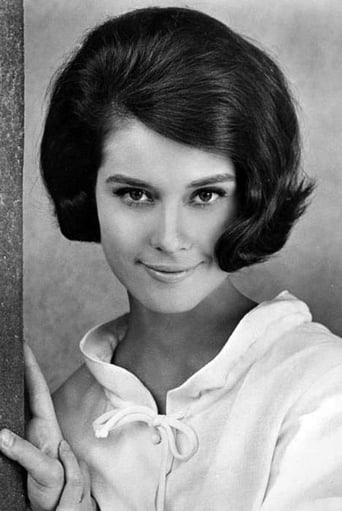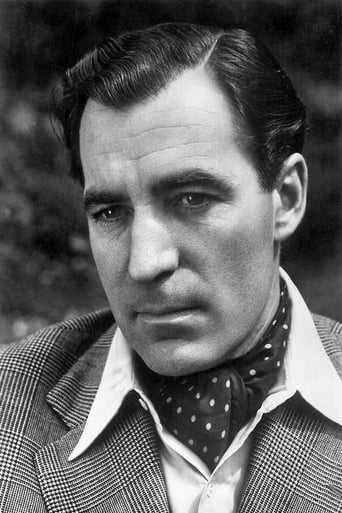Hottoceame
The Age of Commercialism
BootDigest
Such a frustrating disappointment
VeteranLight
I don't have all the words right now but this film is a work of art.
ThedevilChoose
When a movie has you begging for it to end not even half way through it's pure crap. We've all seen this movie and this characters millions of times, nothing new in it. Don't waste your time.
George Taylor
While the budget to this is probably a fifth of that of the better known 300 (which was influenced by this movie when Frank Miller saw it as a child), this is, even with the Spartans wearing Roman gear, the more faithful adaptation. The 300 march to thermopylae and die there, as commanded. But in doing so they save Greece. A really well done low budget film, well worth seeing. And it is available on Blu Ray.
jc-osms
An excellent epic adventure movie, retelling the tragically heroic defence of the Strait of Thermopylae by the Spartan king Leonidas, his bodyguard of 300 men and supporting Greeks. From what I've read, Hollywood for once stays fairly true to the actual historical story, only to my mind contriving a romance between the young son of a disgraced former Spartan king and the daughter of another high-ranking Spartan officer and the subterfuge of a Greek-sympathetic queen within the camp of the Persian king Xerxes.In the early part of the film, there's lots of exposition as different characters get to explain the then-current political situation passed off as dialogue just to make sure the audience understands the historical context. Another minor criticism I might make is that the physical location of the Strait in the movie failed to convey to me its narrowness and hence terrible danger of their defence. While the battle scenes lack the realism of what you might see in a modern-day feature and you never really get the sense of the overwhelming numbers of the Persian army, it's impossible not to get caught up in the spirit of the Spartans futile but heroic resistance and there's real pathos in the ending as death rains down literally, at last, on them.Ralph Richardson is the big name classical actor brought in like Olivier in "Spartacus" to add gravitas to proceedings and this he does capably but Richard Egan, as the noble Leonidas, is particularly good in a performance which makes you wonder why he didn't go on to become a major leading character actor of the 60's. David Farrar, as the mood-swinging Xerxes is perhaps too pantomime-villainy in the part however.I was first taken to this movie with my classmates by a school-teacher as a history lesson many years ago and it made a big impression on me then. Revisiting it today, I got more this time of the history as well as the adventure, but in both ways this is a sword and sandals epic of the best type. A great story, well told, in short.
DKosty123
When this ran on television years ago it was quite popular. The film is sort of a continuation of the middle ages films that became a staple of Hollywood in the 1950's and 1960's. Recently some of them are getting remade because of the advances in special effects.This movie in it's time, holds it's own quite nicely. Based upon the true story from history, there is much to recommend this one. In fact the viewer might wish to do a double feature of this movie and then the recent remake 300 and compare the things in common with the differences. The story of 300 Spartans standing up to an entire Persian empire is really quite compelling, in a way more so than the Americans standing up to the entire Mexican Army at the Alamo. It is the same type of story though, hero's enshrined for the ages by doing the impossible and holding back a huge powerful enemy to buy time so they can eventually be defeated.It is interesting the same history being repeated here. This story is a great one of history, and now with modern technology almost certainly an outmoded type of hero worship from the past.
Robert J. Maxwell
Richard Egan is Leonidas, king of Sparta, one of many independent city states in Greece. Greece is about to be invaded by Xerxes, David Farrar, and his army and navy, which have overwhelming numbers of resources. The first city in Greece that will be taken is Athens, a rival city to Sparta, but the Athenian leader, Themistocles, Ralph Richardson, appeals to Egan for help. If the city states like Athens and Sparta can band together in common defense, they may turn back the invasion. There is disagreement among the Spartan rulers. Why should they help other city states? After all, there is no such thing as "Greece" yet. The wind up is that Egan shows up to hold the narrow pass at Thermopylae with about 300 Spartans, while the Athenians attack the Persians by sea. The Spartans get the job done, too, and beat Xerxes' men back several times until the Persians find an old path around the pass that allows them to surround and wipe out the Spartans.It's roughly congruent with what we know about the battle at Thermopylae, if I can remember it. The majority of Spartans failed to show up at Thermopylae because they were held at home by a religious ceremony. Athens had a great navy; Sparta had none. The battle is often brought up as a perfect example of bravery, discipline, and loyalty. I mean, 300 men against maybe a quarter of a million.The performances aren't bad, either. Richard Egan's range as an actor was limited but he was always a likable guy with his broad smile and muscular frame. Ralph Richardson is as good here as anywhere, which is saying a lot. He's an exceptional actor. David Farrar is convincing but his role is that of the one-dimensional heavy, always growling and ambitious. His sadness at the death of his brother lasts about two seconds before he's plotting revenge again. The writers have dehumanized him and a couple of other characters.This story is one of the few that could actually benefit from CGIs but, considering they weren't available, the director does a reasonable job in handling the battles without them. Lamentably, Rudolph Mate, the director, handles the story as just another piece of work, with no imagination, rather carelessly. I'll give one example. The unseasoned but very pretty Diane Baker is brought to a Greek homestead and faints from hunger and exhaustion while leaning against a friend -- and she remains standing, with her head slumped to her shoulder. This maintains the pace of the scene. If she fell to the ground, as fainting people are wont to do, the man who carries her off would have to bend down and clumsily pick her body up. Mate maintains the syncope while skipping the bothersome fact that a fainting body must, by definition, collapse. It's an old, established cinematic convention -- the unconscious body being dragged while still upright -- but how stupid does the director believe the audience to be? Are we supposed to think that only the head faints? (I'd love to work in a pun on the word "feint" here but I can't think of any way to do it.) I wish we were able to learn more about the political and social background of the battle, as well as the personal stuff. We see that the Spartans are incredibly courageous and skilled at warfare, but most people already know that. We don't learn that Sparta raided a neighboring valley for slaves whenever they ran short, or that the slaves worked in the fields, kept the households, and did such menial tasks as rotating the tires on the family car. This released the Spartan men to do what they did best: (1) prepare for war, and (2) wage war.You think boot camp at Parris Island was rough? That was nothing compared to the Japanese naval air training center at Etajima. And Etajima was nothing compared to Sparta. Boys were permanently removed from their parents, beaten, trained in martial arts, exposed naked to severe weather, and winnowed out until only the most hardy were left. They weren't allowed to have anything to do with women until in their late teens. A note to those with strong opinions on the issue of gays in the military: a part of the training of these world-renowned warriors was to spend some time as sex slaves to an experienced mentor. When they were finally ordained as warriors, after decades of training, they were told to come back with their shield or on it. If a Spartan man wanted to be buried with his name on his head stone he must have died in battle. (A woman had to have died in childbirth.) And all we learn from this movie is that they were brave fighters.








